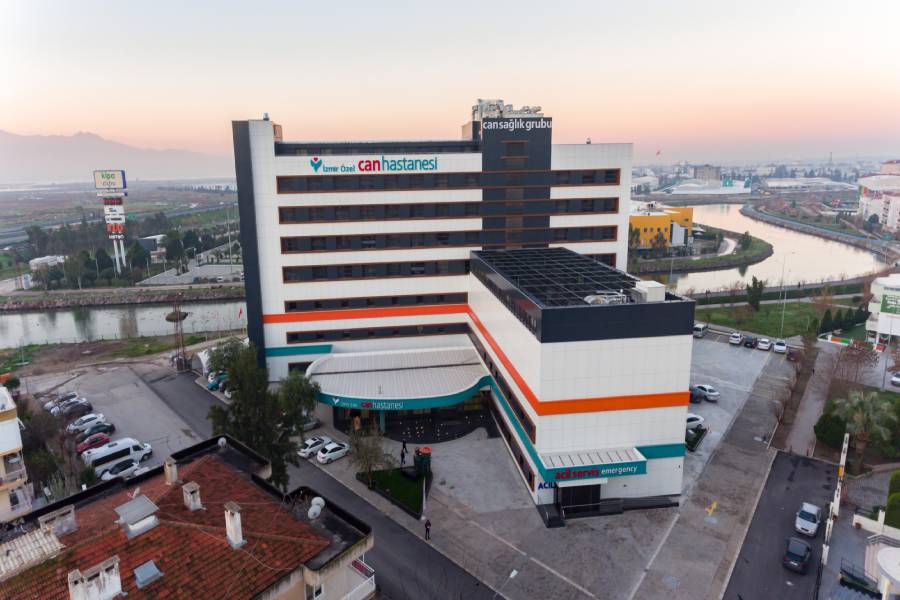Expected Gastric Sleeve Weight Loss Per Month
Categorised in: Genel, HEALTH GUIDE
Published Date:
For those contemplating gastric sleeve surgery, the anticipation of substantial weight loss is paramount. Gastric sleeve, a widely adopted bariatric procedure, entails the removal of a stomach segment, reshaping it into a sleeve. This modification significantly curtails food consumption, inducing a pronounced sense of satiety.
This article aims to elucidate the anticipated weight loss trajectory post-gastric sleeve surgery, presenting a detailed, month by month analysis of expected weight reduction. We will also examine the myriad factors influencing individual outcomes, including initial body mass, compliance with post-surgical directives, and general health status. By gaining insight into the monthly weight loss expectations from gastric sleeve surgery, individuals can establish attainable objectives and maintain motivation towards achieving a more slender, healthier physique.
What is Gastric Sleeve Surgery?
Gastric sleeve surgery, alternatively referred to as sleeve gastrectomy, represents a pivotal intervention within the realm of weight loss surgery, categorised as restrictive. This procedure entails a significant reduction in stomach volume, approximately 75-80%, resulting in a sleeve-like structure akin to a banana. Such a modification drastically curtails the stomach’s capacity, thereby limiting the intake of food at any given time. This limitation precipitates a rapid onset of satiety, thereby facilitating substantial weight reduction.
The surgical methodology involves the excision of the majority of the stomach, including the segment responsible for ghrelin production, the hormone that stimulates appetite. Consequently, patients frequently report diminished hunger and cravings, which significantly contributes to their weight loss endeavours. Gastric sleeve surgery is predominantly conducted laparoscopically, employing small incisions and advanced instruments. This approach minimises scarring and accelerates recovery, contrasting with the more invasive traditional open surgery.
As a formidable obesity treatment, gastric sleeve surgery presents a multitude of potential advantages, including substantial weight loss, amelioration or eradication of obesity-related health conditions such as type 2 diabetes, hypertension, and sleep apnoea, and an overall enhancement in quality of life. Nonetheless, akin to any surgical intervention, it harbours inherent risks, including bleeding, infection, and potential complications associated with anaesthesia. It is imperative for individuals contemplating gastric sleeve surgery to engage in an exhaustive dialogue with their healthcare provider regarding the potential benefits and risks. This discussion is crucial in ascertaining whether this procedure aligns with their specific needs and circumstances.
Weight loss after sleeve gastrectomy
The efficacy of your weight loss endeavour post-gastric sleeve surgery, a prevalent gastric bypass alternative, hinges on several pivotal elements. Your strict adherence to the prescribed gastric sleeve diet, consistent engagement in physical activity, age, initial weight, and general health status are all instrumental in shaping your weight loss trajectory.
Adherence to post-operative dietary protocols is paramount for achieving optimal outcomes. The gastric sleeve diet evolves from clear liquids to pureed, then soft, and finally solid foods over several weeks. Opting for nutrient-rich, low-calorie foods and managing portion sizes are essential for maintaining a steady weight loss pace.
Regular physical activity, as sanctioned by your healthcare provider, significantly bolsters your weight loss endeavours and enhances overall well-being. Individuals who persist in a regular exercise regimen typically experience more pronounced and enduring weight loss compared to those who remain inactive.
Age and initial weight can influence the rate of weight loss. Younger individuals and those with a higher initial BMI often exhibit quicker weight loss in the initial phases. Nonetheless, the enduring success of gastric sleeve surgery, a form of metabolic surgery, is contingent upon a perpetual commitment to a healthy lifestyle.
Opting for a seasoned bariatric surgeon and a distinguished healthcare institution, such as Can Hospital in Izmir, can also significantly enhance outcomes. Their profound expertise and comprehensive support throughout your weight loss journey can facilitate overcoming obstacles and achieving your objectives effectively.
Gastric Sleeve Weight Loss Timeline
For those contemplating gastric sleeve in Turkey or other weight loss surgeries, grasping the anticipated weight loss trajectory is paramount. The query, “How much weight do you lose with gastric sleeve?” elicits varied responses. Nonetheless, the consensus is that the initial phase post-surgery heralds a pronounced weight reduction.
In the initial 3-6 months, patients typically experience a 50-60% reduction in excess weight. This swift weight loss is attributed to the gastric sleeve’s restrictive mechanism, which confines food intake and diminishes hunger-inducing hormones. As the body acclimatises to the diminished stomach capacity, the rate of weight loss may decelerate but persists steadily.
Between 6-12 months post-surgery, the pace of weight loss gradually slows, with many patients achieving a total loss of 60-70% of excess weight. This period necessitates adherence to a balanced diet and consistent exercise regimen to facilitate continued weight loss and forestall stagnation.
Long-term success with gastric sleeve surgery demands an enduring dedication to wholesome lifestyle choices. Post the first year, patients enter a maintenance phase where weight loss stabilises. Adherence to prescribed dietary guidelines and physical activity sustains the achieved weight loss and enhances overall health.
How much weight do you lose with gastric sleeve
The journey towards sustained weight loss post-gastric sleeve surgery, a prevalent obesity treatment, necessitates a perpetual dedication to holistic lifestyle modifications. The surgery, whilst a potent tool for immediate weight reduction, mandates a commitment to a balanced gastric sleeve diet, consistent physical activity, and continuous support from healthcare professionals and support groups.
Post-surgery, patients must adhere to a meticulously structured diet, progressing from liquids to soft foods and, ultimately, to a portion-controlled, nutrient-dense regimen. Prioritising protein-rich, low-calorie foods is imperative to sustain weight loss and avert nutritional deficiencies. Tailored exercise regimens, aligned with the individual’s fitness level, are vital for maintaining a healthy weight, enhancing cardiovascular health, and boosting overall well-being.
Regular attendance at follow-up appointments with the bariatric surgery team is crucial for monitoring progress, addressing any concerns, and making necessary adjustments to the treatment plan. Engaging with support groups or seeking mental health guidance offers invaluable emotional support, aiding in the navigation of the challenges inherent in maintaining a healthy lifestyle post-surgery. By embracing these lifestyle transformations and leveraging available resources, individuals who have undergone gastric sleeve surgery can achieve and sustain substantial weight loss, thereby enhancing their health and quality of life.

Why British Citizens Choose Turkey for Health Services?
British citizens are increasingly opting for Turkey when seeking medical treatments due to a combination of superior healthcare services, affordability, […]

Psychological Effects of Genital Aesthetics on Body Image
In a society increasingly focused on physical perfection, the realm of genital aesthetics has surfaced as an area of both […]

Common Concerns About Genital Plastic Surgery
Genital plastic surgery, a burgeoning field within the realm of cosmetic enhancements, has witnessed a notable surge in popularity. Procedures […]

In which cases is labiaplasty necessary?
Labiaplasty, a procedure that has recently garnered significant attention, involves the surgical reduction of the labia minora. This operation, also […]

Healthy Recovery Process After Genital Aesthetic Surgery
Day Things To Do Things to Avoid 1-7 Days – Bed rest – Using medications recommended by the doctor – […]